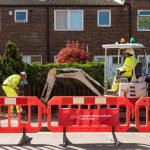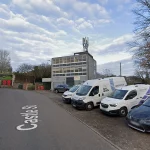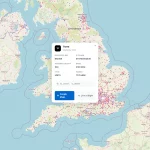Gov Still Hopes for 90% Superfast Broadband in 2015 Despite BT Bung Fear

The UK Government’s Communications Minister, Ed Vaizey, told a debate in the House of Commons yesterday that “half” of the local Broadband Delivery UK (BDUK) projects were running “ahead of schedule” and thus there was still a strong possibility of reaching the original target for 90% to be within reach of superfast broadband (25Mbps+) in 2015.
The comments, which somewhat overlook the delays in a few of the other BDUK projects and the government’s own EU linked administrative stall along the way (i.e. the first target was actually more like spring 2015 than the end of 2015), are also supported by a recent study from Point Topic that predicted 90.8% coverage for late 2015 (here).
Advertisement
However the official expectation from the Department for Culture, Media and Sport (DCMS) is currently to anticipate that 88% of the UK will be within reach of a superfast broadband connection come December 2015 and that the 90% target is likely to be hit during early 2016 (note: Ofcoms latest report claims 73% can already get superfast). But even a 2% shortfall, especially given the complex nature of the task, would still be pretty good going.
Ed Vaizey, Communications Minister, said:
“The PAC gave us a good going over two or three weeks ago about the quality of our broadband rollout and I vehemently disagree with everything they said. … [BDUK and BT have] already reached around 200,000 premises, we’re passing 10,000 a week and by next spring we will be passing 40,000 a week. We hope to get to 90% by early 2016 but given half the projects underway are already ahead of schedule, I think we might get to our target of 2015.”
It should also be remembered that the target has since been extended to reach 95% by 2017. However recent information from Ofcom states that the 2017 date also applies to the government’s Universal Service Commitment (here). Under the previous government this would have made Internet download speeds of at least 2Mbps available to “virtually” everybody by the end of 2012.
But at the time that 2012 USC target never seemed especially realistic and in 2010 the new coalition government opted to instead push it back to 2015 alongside its superfast target, which has now become 2017. At the time of writing Ofcom estimates that 92.2% of the country can access a 2Mbps+ capable broadband service.
Meanwhile Ed Vaizey also took fire from several MPs for the well documented competition concerns that surround BDUK’s existing framework, which has so far resulted in BT picking up all of the related contracts and many without any rival bidders being involved.
Advertisement
Smaller ISPs (altnets) were effectively priced out of the process by a heavy turnover requirement and even bigger providers (GEO, Fujitsu UK) struggled to make the economics work, not least because the Physical Infrastructure Access (PIA) product (access to BT’s cable ducts and poles) doesn’t allow business provision.
Chris Bryant, Labour MP for Rhondda, said:
“Areas like the Rhondda have real difficulty for people being able to get broadband either to their home because they are too far from the final mile or else because the bung that’s been given to BT to be able to roll this out across the country [also] make it almost impossible for anybody else to compete. [This] has made it difficult for other operators to get into places like the Rhondda.”
Similarly the Conservative MP for Kettering, Philip Hollobone, said he felt that “BT is a big company which sometimes doesn’t treat small communities very well” (here). In fairness BT are a commercial company and as a result they take commercial decisions, which often makes it difficult to construct a business case for spending significant chunks of money on connecting a tiny number of people where the return might take several decades.
Sometimes smaller ISPs are a better choice for these areas thanks to their inherent flexibility and more community minded approaches, although this too can sometimes cause unexpected problems (here). Ultimately if you want to create real change in rural areas then, except in a few locations, the national initiative has to come from improved regulation (Ofcom) and or government / public investment.
Mark is a professional technology writer, IT consultant and computer engineer from Dorset (England), he also founded ISPreview in 1999 and enjoys analysing the latest telecoms and broadband developments. Find me on X (Twitter), Mastodon, Facebook, BlueSky, Threads.net and Linkedin.
« O2 Wholesale Closure Begins to Hurt UK ISPs – Aquiss Broadband Hit
The Top 7 Fastest UK Home Broadband ISPs for October 2013 »






















































Comments are closed